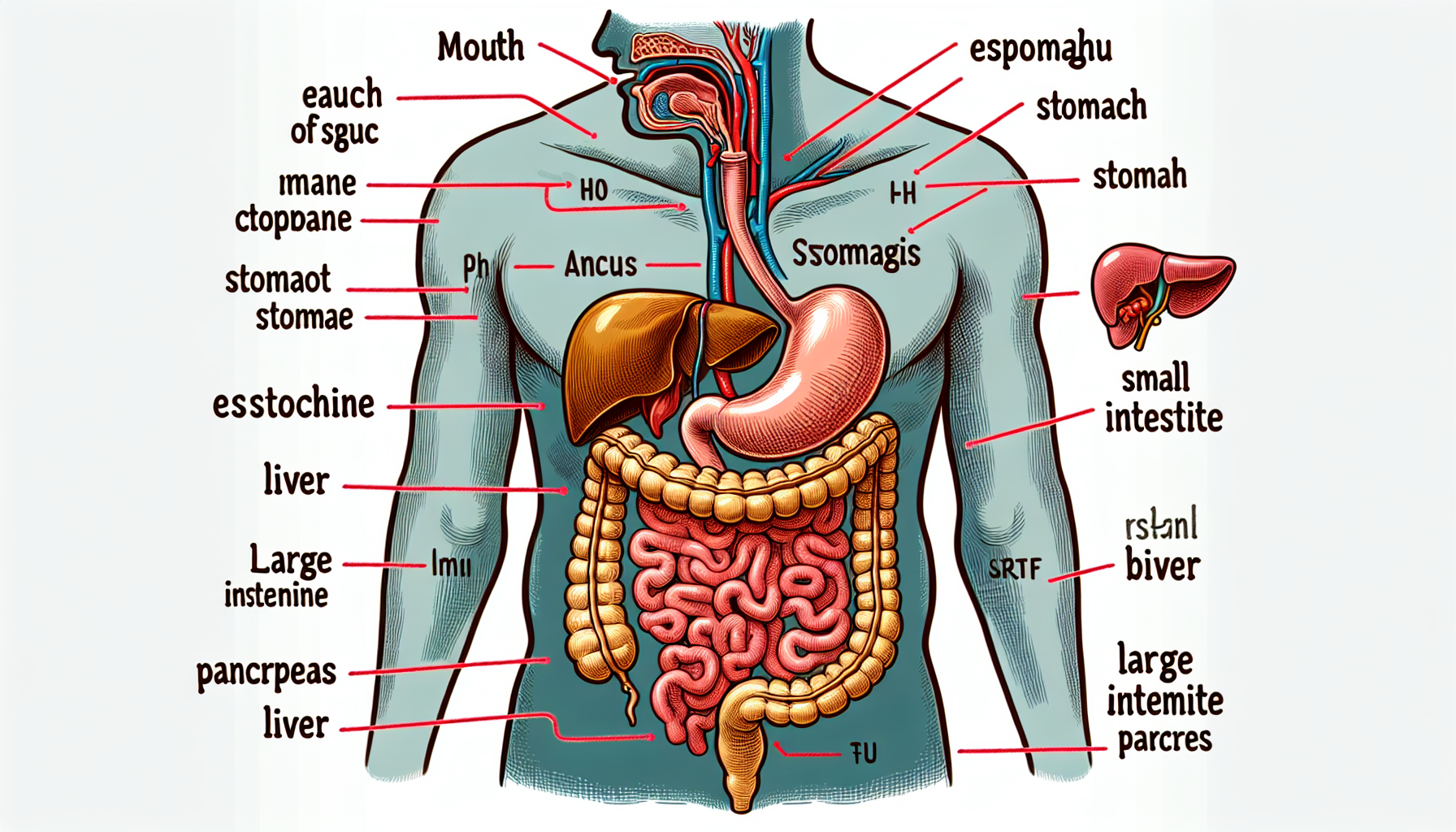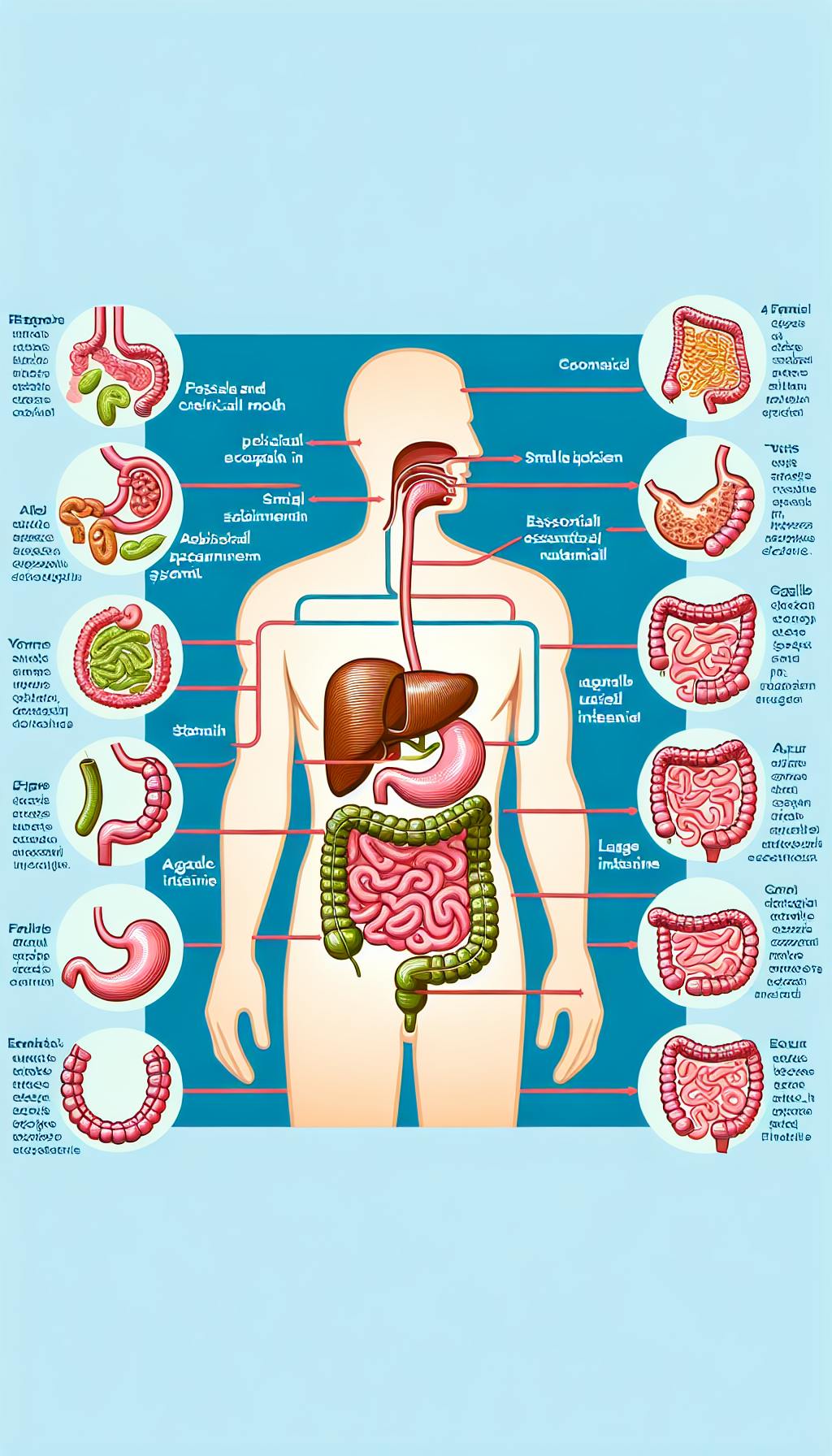The digestive system is a complex and essential part of the human body. It is responsible not only for breaking down food into nutrients but also for absorbing these nutrients and disposing of waste products. This intricate process involves an array of organs, each playing a specific role in maintaining the overall health and balance of the body.
The Journey of Food: From Ingestion to Elimination
The digestive journey begins the moment food enters the mouth. Here, the mechanical process of chewing combines with the chemical action of saliva to break down food into a form that can be processed by the body. The food then travels down the esophagus and into the stomach, a muscular organ that uses acid and enzymes to turn food into a semi-liquid substance called chyme.
The small intestine is where most of the digestion and absorption of nutrients occurs. Enzymes from the pancreas and bile from the liver work together to break down fats, proteins, and carbohydrates. The nutrients are then absorbed through the walls of the small intestine into the bloodstream, where they are transported to various cells throughout the body.
After the small intestine has done its job, the remaining waste moves into the large intestine or colon. The colon absorbs water and salts from the waste, turning it into a solid matter called stool. This stool is then passed through the rectum and eliminated from the body.
The Importance of Digestive Health
A healthy digestive system is vital for overall well-being. When the digestive system is functioning correctly, it efficiently delivers the right nutrients to the body, supports immune function, and helps regulate many bodily processes.
However, when digestive health is compromised, it can lead to various issues, such as nutrient deficiencies, weight gain, and increased susceptibility to infections. This is why understanding the importance of gut health for overall well-being is critical.
Balancing the Gut Microbiome
The gut microbiome, which consists of trillions of microorganisms living in the digestive tract, plays a crucial role in digestion, immune function, and even mental health. Maintaining a balanced gut microbiome is essential for good digestive health. One way to support this balance is by incorporating probiotics and prebiotics into your diet.
The Role of Diet in Digestive Health
Dietary choices have a significant impact on digestive health. For example, a diet high in fiber is beneficial for the digestive system as it helps regulate bowel movements and prevent constipation. Conversely, diets high in processed foods and low in fiber can lead to digestive problems.
Understanding the role of different nutrients and how they affect the digestive system can help in making better dietary choices. For instance, learning about the undeniable link between dietary fiber and digestive health can guide one towards a diet that supports gut health.
Gut Health and CBD
In recent years, the use of cannabidiol (CBD) has gained popularity for its potential health benefits, including its effects on digestive health. While research is still ongoing, some studies suggest that CBD may help reduce inflammation and promote gut health. For those interested in exploring this option, a resource like SuperGreatCBD provides valuable information on CBD and its uses.
Managing Digestive Disorders
Digestive disorders can range from common issues like heartburn and indigestion to more complex conditions like irritable bowel syndrome (IBS) and inflammatory bowel disease (IBD). Managing these conditions often requires a combination of dietary changes, medications, and sometimes even surgical interventions.
For individuals suffering from digestive disorders, finding ways to manage symptoms is crucial. Resources that offer information on natural supplements for boosting digestive health can be particularly helpful.
External Resources for Further Reading
To further understand the digestive system and its functions, several high-quality resources can provide additional insights:
- The Mayo Clinic offers a comprehensive overview of the digestive system and its workings. Visit Mayo Clinic’s Digestive System Information for more details.
- For those interested in the scientific and biomedical aspects of digestion, the National Institute of Diabetes and Digestive and Kidney Diseases (NIDDK) provides in-depth research and information. Check out NIDDK Digestive Diseases Topics.
- The American Gastroenterological Association provides resources for patients and healthcare professionals alike, with a focus on digestive health advocacy and education. Explore AGA Patient Education.
Visualizing the Process
To truly appreciate the complexity of the digestive system, visual aids can be beneficial. Infographics and diagrams can help illustrate how the various organs work together to process the food we eat.
Innovations in Digestive Health
As our understanding of the digestive system continues to evolve, so do the treatments and approaches to maintaining digestive health. New research on the gut microbiome, for example, is leading to innovative probiotic treatments and dietary recommendations.
Conclusion
In conclusion, the digestive system is a marvel of nature’s engineering, playing an indispensable role in our overall health. By understanding its functions and the importance of maintaining a healthy digestive system, individuals can make informed decisions about their diet and lifestyle to support their digestive well-being.
Remember, taking steps to improve and maintain your digestive health is a worthwhile investment in your long-term health and quality of life. Whether it’s through diet, exercise, or the use of supplements like CBD, there are numerous ways to support your digestive system and ensure it functions at its best.



